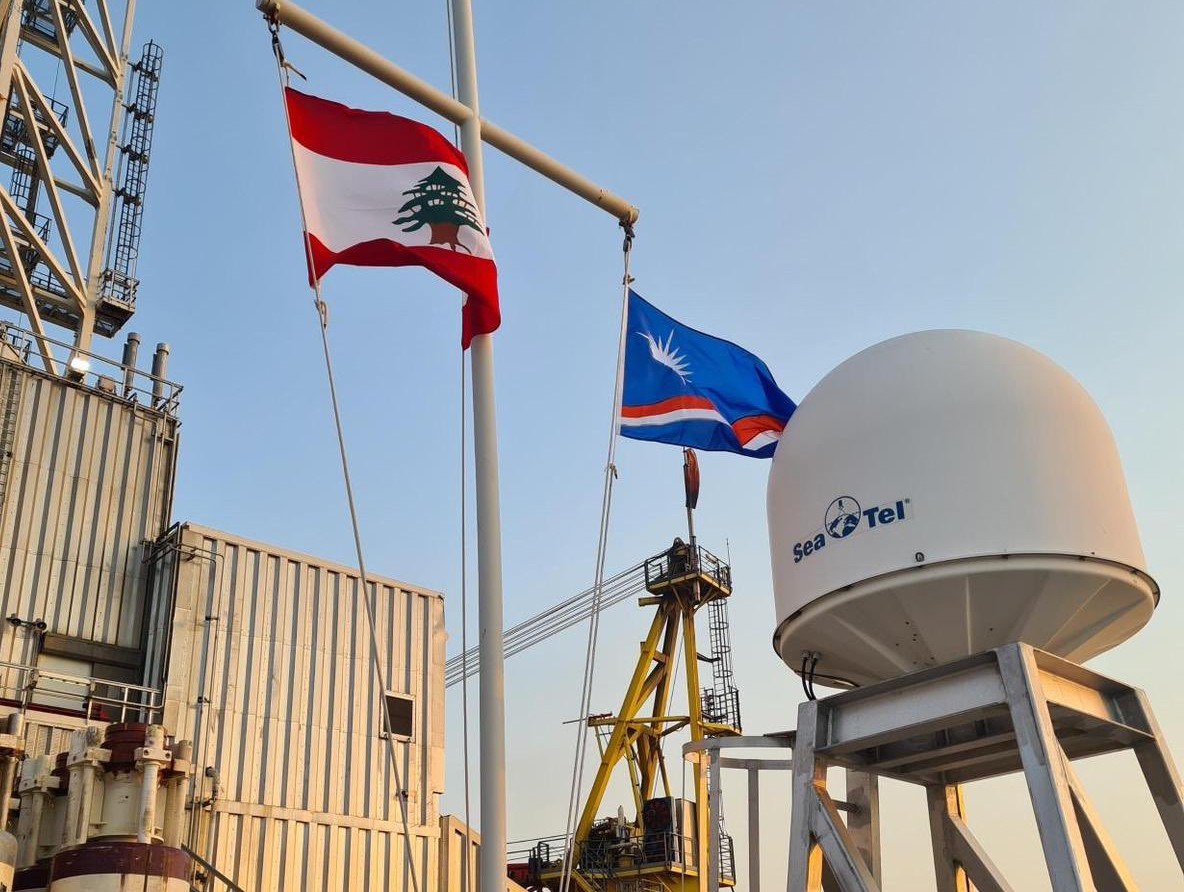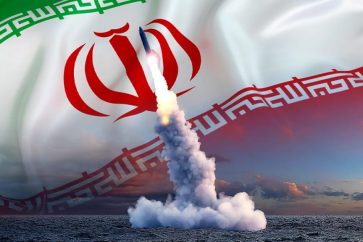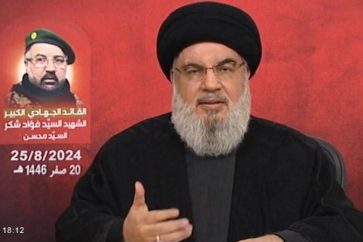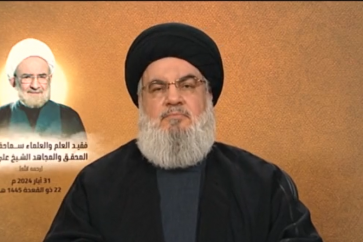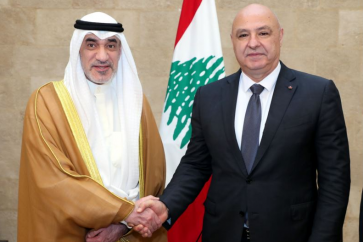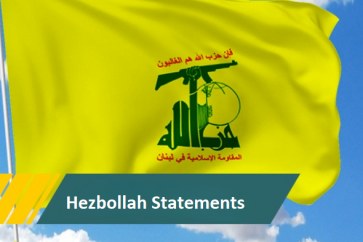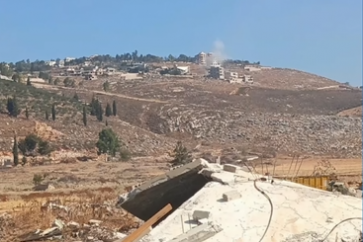Lebanon’s Minister of Public Works and Transport, Ali Hamieh, announced a groundbreaking chapter in the nation’s energy narrative as an oil and gas exploration ship embarked on a historic mission in Block 9.
This remarkable undertaking marks the initiation of drilling operations in the offshore realm, unlocking a potential wellspring of economic transformation and sustainable development.
The vessel’s arrival, witnessed by a spectrum of high-ranking officials, signifies the convergence of efforts to harness Lebanon’s untapped natural wealth. As the nation takes this momentous stride, complexities related to environmental stewardship, regulatory frameworks, and equitable wealth distribution stand as pivotal challenges to overcome.
This report delves into the inauguration, implications, and aspirations tied to this pivotal juncture, underscoring the collaborative determination to secure Lebanon’s energy future.
Firstly, the inauguration of drilling operations was marked by the arrival of the Transocean Barents drilling rig offshore Lebanon on Wednesday morning.
Subsequent to fulfilling its designated tasks, the Transocean Barents ship reached the port of Beirut, where it underwent on-site inspection. This examination was conducted under the supervision of Minister of Energy and Water, Walid Fayad, Minister of Environment, Nasser Yassin, Minister of Public Works and Transportation, Ali Hamieh, Director-General of the Port of Beirut, Omar Ayatani, and delegates from the Petroleum Sector Management Authority. The event was graced by the participation of dignitaries from diverse Lebanese departments.

Why Qana 96?
In his address, Minister Hamieh reaffirmed the pivotal role of the Ministry of Public Works and Transport as the logistical backbone of Lebanon’s oil and gas exploration endeavours. He emphasized the ministry’s role in establishing a robust logistical base at the Beirut port, which facilitates essential licensing for exploration vessels and equipment transportation from the Lebanese mainland to the drilling platform. The transportation of personnel to and from the drilling platform was also highlighted, with the helicopter route originating from Rafic Hariri International Airport and the approved logistical base.
The minister stressed the profundity of the oil and gas exploration undertaking in Lebanon, expressing optimism that this venture would yield favourable and promising outcomes. Hamieh fervently aspired for Lebanon to emerge as a beacon of optimism among oil-producing nations, fostering a renewed sense of hope for the Lebanese populace.
Hamieh bestowed the nomenclature “Qana 96” upon the helicopter air navigation route connecting Beirut’s airport and the drilling platform. This appellation pays tribute to the martyrs of the Qana massacre in 1996, a pivotal milestone in Lebanon’s history with the Israeli enemy massacres, which laid the groundwork for triumph and resurgence.
إطلاق اسم #خط_قانا_96 على خط الملاحة الجوي للهليكوبتر بين مطار رفيق الحريري الدولي بيروت ومنصة الحفر والتنقيب في البلوك ٩ أتى تخليدا لشهداء مجزرة قانا عام 1996،والذي نعتبره تاريخاً مفصلياً وتأسيسياً للانتصار، وعلى أمل أن تكون هذه المحطة اليوم بارقة الأمل وبداية النهوض للوطن ككل pic.twitter.com/bnYXXaFrzk
— Ali Hamie | علي حمية (@alihamie_lb) August 16, 2023
The vessel “Janus 2,” operated in collaboration by Total Energies, Eni, and Qatar Petroleum, has successfully culminated its environmental survey within the confines of Block 9, situated within Lebanese waters, according to reports from media sources.
“We harbor the anticipation of witnessing Lebanon’s transformation into an oil-producing state,” expressed Walid Fayad, Lebanon’s Minister of Energy and Water within the caretaker government. He provided insights into the timeline of the drilling process, with expectations for the unveiling of results within a span of two to three months.
In an earlier discussion with Sputnik, Fayad unveiled projections that the oil and gas exploration drilling operations would reach fruition approximately 90 days after their initiation.
French enterprise TotalEnergies, in alignment with partners Eni and QatarEnergy, formalized an agreement to initiate drilling and exploration activities in Lebanese waters off the coast of Beirut, with operations commencing in late August.

TotalEnergies released a statement elucidating that the Transocean Barents rig has positioned itself at a distance of around 120 kilometers from the Beirut coast. The inaugural helicopter destined to shuttle personnel to and from the rig has stationed itself at Rafik Hariri International Airport.
The arrival of this equipment marks a significant stride in the preparatory stages leading up to the imminent drilling of the exploration well later this month, TotalEnergies emphasized.
Originally, the consortium consisting of TotalEnergies, Eni, and Novatek of Russia held the initial exploration license for Block 9. However, the group saw the withdrawal of Novatek due to the ongoing conflict in Ukraine.
Through intermediation by the United States, Lebanon and the Israeli occupation finalized a maritime border deal in late October.
It’s July Victory’s Legacy
On the 17th anniversary of July War victory this Monday, Hezbollah Secretary General Sayyed Hasan Nasrallah articulated that the endeavor of delineating maritime borders and embarking upon exploration stands as a testament to the legacy forged from the aftermath of the July 2006 victory. He underscored the intricate interplay between the triumph of the resistance and the strategic capacities of the nation, underpinning the consequential milestones achieved.

In reflecting on this achievement, Sayyed Nasrallah aspired for a unified approach among the parliamentary deputies regarding the sovereign fund. He emphasized the imperative of adopting a perspective rooted in both national and sovereign values. The establishment of such a fund emerges as a pressing requirement for Lebanon to ensure equitable access to the wealth generated from the nation’s oil resources. This, he underscored, would allow all segments of Lebanese society, including future generations, to reap its benefits.
As part of the legislative agenda for the forthcoming session scheduled on Thursday, five critical laws and legislative proposals are set to be discussed, with the sovereign wealth fund being the most important.
The rigidly crafted sovereign wealth fund, designated for the astute management and strategic investment of the nation’s petroleum resources, stands as an examined construct poised to function as a distinct public institution. Engineered to function autonomously, it is strategically designed to remain detached from the conventional managerial guidelines adhered to by public sector entities.
This distinctiveness is inherent in its purpose of overseeing the comprehensive stewardship of Lebanon’s state-owned petroleum resources, thereby endowed with a distinct legal identity and endowed with pronounced financial and administrative autonomy.
It’s important to say here that the arrival of the drilling vessel at Block 9 in Lebanon marks a watershed moment, carrying the potential to catalyze a seismic shift toward economic revitalization and sustainable progress.
In light of this transformative juncture, the collective responsibility falls upon the government and stakeholders to wholeheartedly address the multifaceted challenges tied to environmental considerations and regulatory frameworks.
Their concerted efforts are indispensable in orchestrating a process that not only aligns with the best interests of the Lebanese populace but also culminates in the realization of their well-being and prosperity in the enduring trajectory ahead.’
Source: Al-Manar English Website

